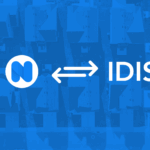
If you’ve found yourself in a situation where finding and paying for affordable housing is a challenge, luckily there are options available to alleviate some of the burden.
However, navigating the complex landscape of housing assistance can be daunting. You may have heard of the Housing Choice Vouchers program as a potential solution but are unsure of whether you qualify.
So, we’re here to help lay it all out for you, including your different options available, all of the eligibility criteria, the application process, and any other important things to keep in mind. Hopefully, this helps you take that first step towards a more stable living environment.
Contents:
Housing Choice Vouchers vs. Section 8 vs. Public Housing
How the Housing Choice Vouchers Program Works
Housing Choice Vouchers Eligibility Criteria
The Role of the Public Housing Authorities (PHA)
Applying for Housing Choice Vouchers
Handling Changes in Income After Approval
Are Housing Choice Vouchers, Section 8 Housing, and Public Housing the Same?
When the topic of affordable housing is discussed, these three programs typically come up. It can be a little confusing to understand what the difference is between all three, or if there even is a difference.
To begin, Housing Choice Vouchers is the new name for the program formerly known as Section 8, so they are in fact, the same thing.
Both Housing Choice Vouchers (FKA Section 8) and Public Housing are low-to-medium income housing programs from the Department of Housing and Urban Development (HUD) and managed by the local Public Housing Authority (PHA).
- Housing Choice Vouchers (or Section 8) is a program that allows families to rent housing from private landlords or developers at a subsidized cost according to their income.
- Public housing allows families to rent government-owned properties at a subsidized cost according to their income.
Housing Choice Vouchers are a Popular Option
The housing choice vouchers program is the federal government’s major program for giving very low-income families, the elderly, and the disabled access to affordable, safe, and sanitary housing.
Because of the freedom to choose where to live, as opposed to living in government-funded housing, housing choice vouchers are a highly popular option. It can help to decrease stigma and give low-income families some very important agency.
How the Housing Choice Voucher Program Works
The public housing authority (PHA), or the government agency in charge of approving and managing these vouchers, pays a housing subsidy directly to the landlord on behalf of the participating household. Then, the family pays the leftover difference between the amount covered by the PHA and the actual rent.
Typically, recipients pay around 30-40% of their monthly adjusted income towards rent and utilities, and the PHA makes up the difference. If utilities aren’t included in the rent, households are typically given a utility allowance to cover these costs.
You can’t use your voucher on any rental unit on the market, though.
First, you must find a landlord that accepts vouchers. While in some states, landlords are legally required to accept vouchers, this is not the case in every state. You must also take into account the total rent. From jurisdiction to jurisdiction and household to household, there are varying maximums for rent prices that will be accepted.
And finally, rental units undergo thorough inspections to ensure that they meet the minimum standards of health and safety before being approved for Housing Choice Vouchers.
It’s worth noting that while these vouchers typically apply to rental units, there are certain circumstances where the PHA authorizes the family to use its voucher to buy a modest home.
HCV Eligibility Criteria
If housing choice vouchers sound like the best option for you, let’s dig into some of the requirements that your approval hinges on.
Meeting all eligibility requirements doesn’t automatically guarantee approval, but this can act as a great indicator of whether it’s worth looking into further.
The Role of the Public Housing Authority
The Public Housing Authorities (PHA) is the government organization that is in charge of approving households for vouchers. PHAs receive federal funding from the U.S. Department of Housing and Urban Development, also known as HUD, to administer the voucher program.
PHAs function on the local level, meaning that the criteria they use to determine your eligibility can vary from jurisdiction to jurisdiction. Because everything is relative to the PHA, everything below will serve as a basic guideline, but there may be variances in your specific jurisdiction.
Income Requirements
Since Housing Choice Vouchers are designed to help low-income families, income is one of the main criteria used to determine if you qualify.
These income limits are set by HUD at the local level and categorized as low-income, very low-income, or extremely low-income. Since these are based on locality, there can be large differences between limits in high cost of living, medium cost of living, and low cost of living areas. In California, for example, the threshold to be considered low-income is much higher than, say, in Iowa.
Generally, the income limit allows you to make up to 50% of the median income for your county or metro area.
However, there are usually some requirements on PHA’s to provide aid to households most in need. Typically, this means that they have to provide the majority of funds to people who make below 30% of the median income in their area. So, households that make somewhere between 30-50% usually get put on longer wait lists.
To see where your household income falls relative to the rest of the households in your area, you can use this tool from the Census Bureau to search for the median income.
Family Status
The income above is determined on the household, not individual, level. HUD refers to the household as a “family.” However, their definition of family is looser than we typically think of it.
They define a family as groups of individuals who live together and whose income/expenses are closely intertwined. By this definition, as long as everyone is under the same roof, family could refer to:
- A traditional nuclear family, i.e. a couple and their children
- A nuclear family and extended family like grandparents, aunts, or nephews that live with them
- Married or unmarried couples
- Any other situation in which more than one person are living together and at least one person is dependent on the other financially.
- A single person living alone
This definition doesn’t include platonic roommates who do not share finances. If both roommates are applying for housing choice vouchers, they must apply separately.
In line with the Fair Housing Act, PHA’s can’t discriminate against families based on marital status, age, race, color, national origin, familial status, religion, or disability. The definition of family is simply used to determine family size, not to determine eligibility.
The only instances in which special circumstances, such as elderly or disabled family members, may be taken into account are if they need additional considerations in living arrangements, such as a unit with specific accessibility features.
Family size
The family size affects the amount awarded for the voucher. This is because larger families need larger spaces with more bedrooms to accommodate more members, typically leading to higher rent prices. HUD’s occupancy standards inform the amount of space needed to avoid overcrowding and underuse of housing units.
Citizenship Status
Only U.S. citizens, nationals, or non-citizens with eligible immigration status qualify for the Housing Choice Vouchers program. Eligible non-citizens include lawful permanent residents (green card holders), asylum seekers, refugees, and other non-citizens who have been granted legal status in the United States.
In the application process, you must provide proof of your citizenship or eligible immigration status. U.S. citizens are typically required to show their birth certificate, passport, or some other verifiable proof of citizenship. Non-citizens must present relevant immigration documents issued by the U.S. Citizens and Immigration Services (USCIS).
There may be some families where immigration status is mixed, meaning some family members are citizens or eligible non-citizens and others are not. This does not make the entire household ineligible for Housing Choice Vouchers, though.
If approved, the voucher amount will be prorated to only cover eligible family members. That just means that the family’s portion of rent will be higher than it would be if all family members were eligible.
Background Checks
To ensure the safety of the housing community in which applicants will use their voucher to live and to comply with federal regulations, all Public Housing Authorities conduct criminal background checks on all adult family members during the application process.
Certain criminal convictions disqualify an applicant from being eligible for Housing Choice Vouchers. Typically, these include drug-related offenses, violent criminal activity, and certain types of sex offenses. This can vary from one PHA to the next, though.
There is often a “look back” period for these background checks, meaning that they only look into an applicant’s criminal history for a certain number of years prior. Again, this varies from jurisdiction to jurisdiction and could be a few years or more.
It’s important to note that not all criminal records will automatically disqualify an applicant. Anything flagged on a background check will typically be reviewed on a case-by-case basis, and factors like the nature of the time, severity, time since the offense, and evidence of rehabilitation are taken into account.
Crimes that typically make you ineligible are:
- Being a registered sex offender
- Having drug-related evictions, though successful completion of a rehabilitation program may mitigate this.
Am I Still Eligible for Housing Choice Vouchers if a Family Member Has a Criminal Background?
The ineligibility of one family based on criminal background does not always disqualify the entire household. Other family members may still qualify for assistance, but the ineligible family member will likely not be allowed to live with them in the subsidized housing.
Applying for Housing Choice Vouchers
If you’ve read through all of the sections above and believe that you are a prime candidate for Housing Choice Vouchers eligibility, the next step is applying.
Here’s how to do it, step-by-step.
1. Locate Your Public Housing Authority
The applications are PHA-specific, so you’ll first need to find the correct one for your area. You can use PHA Contact Information page on the HUD website to easily search for yours.
2. Check for Open Waitlists
Depending on the affordable housing needs in your area, there may pretty lengthily waitlists to receive Housing Choice Vouchers. In especially saturated, high-cost-of-living areas, some of these wait lists may not be open to join.
You have two options. You can either wait for the waitlist to open. But if you are in more immediate need of housing assistance, you can consider applying to HCV programs in other jurisdictions. Different PHA’s operate independently, and their waitlists may have different statuses, so you may have more luck looking in your surrounding areas.
Keep in mind, though, that applying in a new area might be relocating if you’re awarded a voucher.
3. Gather Your Documentation
It’s helpful to gather everything you’ll need before you start the application process to make it as smooth as possible.
Here’s a list of documentation to grab for all adult household members:
- Proof of income
- Birth certificates
- Social Security cards
- Photo IDs
You may also need documentation of your current housing situation, employment, and any additional benefits members of the household receive.
4. Complete the Application
Now it’s time to complete your application! Depending on your specific Public Housing Authority, the method to apply can vary, whether it’s in-person, via snail mail, or online, and you may have multiple options available for you to choose from.
Some PHAs have begun to use cutting-edge tools like Neighborly Software to streamline this process for both their teams and applicants.
5. Waiting Time and Possible Interview
After you apply, there is unfortunately often a waiting period of a varying amount of time. During this time, you may also be contacted for an interview to help PHAs further determine your HCV eligibility.
Once you’re approved, you may get a voucher right away, or you may be placed on another waitlist for the next available voucher.
6. Once Approved, Select Your Housing in a Timely Manner
Once you officially receive your housing choice voucher, you have a certain amount of time to find suitable housing. This period is typically around 60 days. If you’re not able to find eligible housing during that time, you can request an extension, and the approval is up to the discretion of the PHA. Common extension periods are 30-60 days.
If you don’t find housing during this time, you can lose your voucher and may have to reapply to become eligible again. Especially if you are in an area with long wait lists, you want to avoid this situation at all costs to avoid the risk of losing your housing assistance.
What Happens if My Income Changes?
Once you’re approved for Housing Choice Vouchers, you typically don’t have to reapply each year to stay eligible. However, you will have to go through an annual recertification process so that your PHA can verify that you’re still eligible, based on income family size, immigration status, and criminal history.
If your income changes outside of this window, though, you must report it to the Public Housing Authority that administers your voucher. This includes both increases and decreases in your income.
You have a certain period of time in which you’re required to report it after the change occurs, but this can vary, so make sure you verify this time frame with your PHA upon approval, especially if you expect changes in your income. Failure to report during this certain time can leave you on the hook for underpayments or overpayments.
If My Income Goes Up, Am I Automatically Ineligible?
You’re not guaranteed to be ineligible just because your income goes up. In many cases, it simply means that your rent contribution will be recalculated and rise in proportion to your increase in income.
On the flip side, if your income goes down, that also means that the portion you pay in rent may go down to help offset the decrease in income. Housing Choice Vouchers typically ensure that households are paying no more than 30-40% of their monthly income.
If your income increases so much that it bumps you out of the low-income classification in your area, that is the only time that it would make you ineligible.
Good Luck in Applying for the HCV Program!
We know that being in a position where you’re struggling to afford housing can be a difficult and vulnerable time. Hopefully this guide to Housing Choice Voucher eligibility helped eliminate a little bit of uncertainty and gave you some next steps to take.
Are you a Public Housing Authority administrator looking for a better way to manage HCV applications and voucher distribution? Learn more about Neighborly Software’s purpose-built solution that is transforming the way PHAs manage their Housing Choice Vouchers programs.









